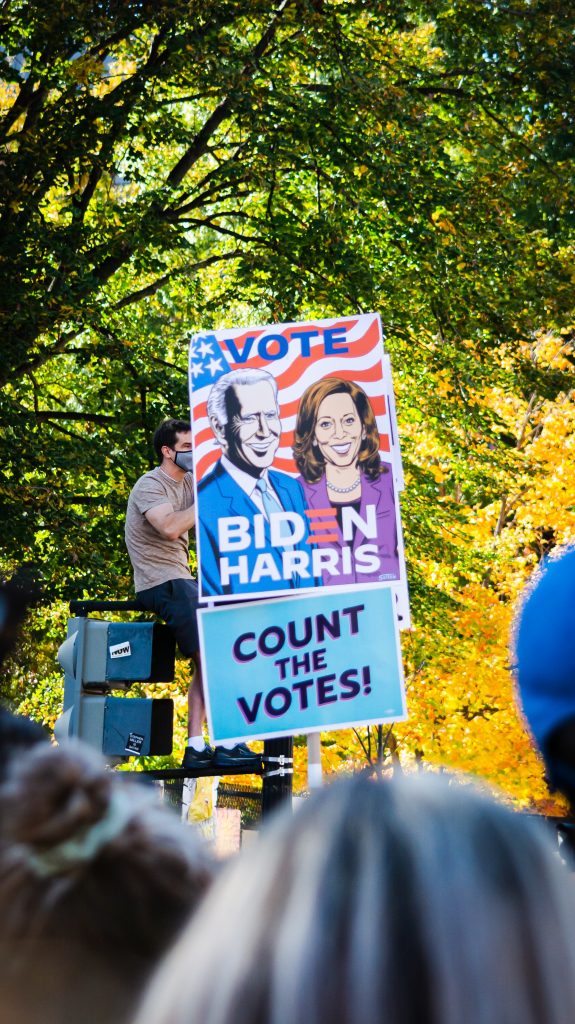
01 Dec What The US Election Results Mean For Online Privacy Laws
Online privacy and data collection was thrust into the limelight after the 2016 US Election, four years on has any progress been made on protecting our privacy and personal data online?
In the lead up to the 2016 US election, the Trump campaign team invested largely in Facebook ads. This campaign was facilitated with the assistance of London based political consulting firm, Cambridge Analytica. For campaign ads to be most effective they needed to be precisely targetted, so detailed information on voters would need to be compiled. Cambridge Analytica’s strategy was to harvest data from at least 50 million private Facebook profiles in a scandal which was widely covered by mainstream media at the time. Many remain convinced that this influenced the election results.
Four years later, the US are yet to have a federal data privacy law. However, following the European Union’s implementation of their General Data Protection Regulation in 2018, it is almost certain that one is around the corner.
To continue to share data and hence do business with the EU, Washington will have to abide by the GDPR by matching US levels of data protection to it. To have inconsistent levels of data protection between different states would wreak havoc for businesses operating over multiple states. Hence, it is in the interests of the US economy to implement a federal data protection law.
So whichever party had won in 2020, a federal data protection law would likely have been on the upcoming agenda. In fact, this time last year, Democrats and Republicans reached a rare agreement in that there was a need for one. However, their methods of establishing it remain far from bipartisan.
Both parties presented bills which demanded greater transparency and consumer control from companies collecting data. However, whereas Republicans advocated for a more economically driven bill with their Consumer Data Protection Act (for example, by removing any existing, stricter data laws within states), Democrats seemed to be more focused on ethical data practices and the protection of civil rights . These were laid out in their proposed Consumer Online Privacy Rights Act.
Inevitably, this year, discussion of these bills was largely pushed aside, as all focus shifted onto dealing with Covid19. Control of the pandemic is likely to remain the centre-stage. However, in a bid to protect and promote the US economy, a GDPR-like bill may soon be ushered in so to facilitate business with the EU.
It’s likely that Kamala Harris herself may turn the spotlight back on the need for privacy laws. Harris’ meticulous questioning of Mark Zuckerberg in 2018’s Cambridge Analytica data breach hearing reaffirmed that data privacy is a top priority of hers. As past California Attorney General, she has always had a close eye on Silicon Valley, and especially the collection, commercialisation and exploitation of data, telling the New York Times: “I believe that the tech companies have got to be regulated in a way that we can ensure and the American consumer can be certain that their privacy is not being compromised”.

However, as of December 2020, there is still no bill, and until one is passed, the onus lies on consumers to protect themselves and their data online. Users very often fail to read terms and conditions of sites and apps they sign up to, one survey found that over 90% of consumers accept legal terms and conditions without reading them, putting convenience over consequences. But it’s crucial that all consumers make themselves aware of the variation between sites’ and companies’ privacy terms, and understand what data is being collected about them.
Ultimately, the large quantity of data companies are able to harvest from us reflects on us and our relationship with our tech and online spaces. Yes, scandals such as the Cambridge Analytica scandal are shocking displays of how data we release can be exploited, but it should also be a wake-up call to re-evaluate how much we are giving away online. If our online habits dominated our daily lives less, of course, this would reduce the significance of much of the data we give away.






Sorry, the comment form is closed at this time.